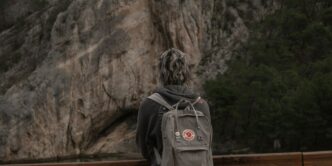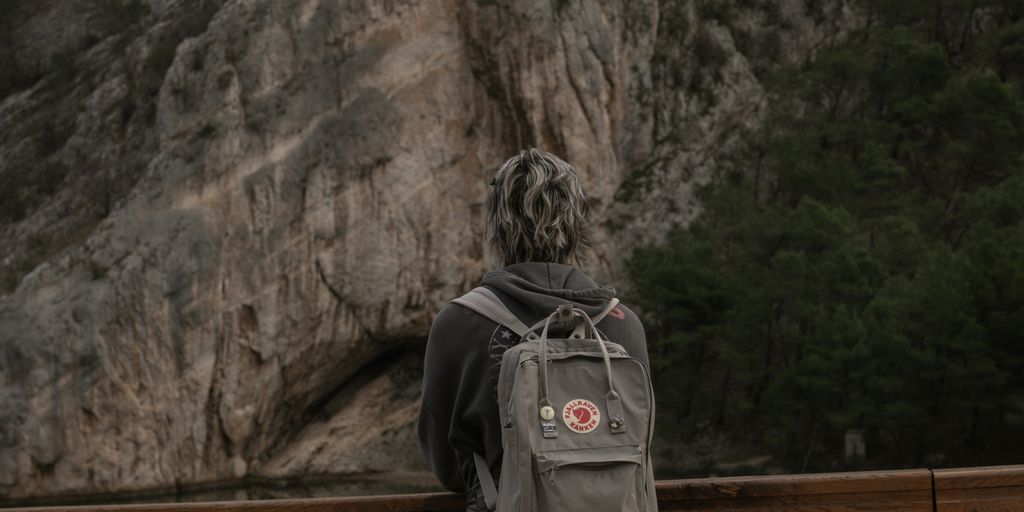Landing outdoor industry jobs can feel like wandering in the woods without a map. You might worry you need special contacts or a perfect resume, but there’s a clear trail to follow. This guide lays out the steps to learn the job landscape, get hands-on experience, craft a strong application, grow your network, and find openings online. Follow these pointers and you’ll be closer to starting your outdoor career by 2025.
Key Takeaways
- Understand the main areas of outdoor industry jobs, where employers are hiring, and what trends to watch.
- Build real experience with field internships, volunteer work, and by highlighting your practical skills.
- Tailor your resume and cover letter for outdoor brands and include any certifications you’ve earned.
- Connect with outdoor communities, attend industry events, and seek mentors for tips and referrals.
- Use niche job boards, polish your LinkedIn profile, and set up alerts on company sites to spot new roles.
Understanding The Landscape Of Outdoor Industry Jobs
Identifying Core Sectors And Employers
Okay, so you want to work in the outdoor industry? Awesome! First, let’s break down what that actually means. It’s way more than just working at REI (though that’s cool too!). Think about the core sectors: outdoor retail (like REI, but also smaller local shops), manufacturing (building the gear), conservation (protecting the places we play), tourism and recreation (guiding, resorts), and outdoor education. Each sector has its big players and smaller, niche companies. Knowing the difference is key. For example, in the landscaping sector, the market is booming, with many opportunities for growth and specialization.
Spotting Emerging Trends And Opportunities
The outdoor industry isn’t static. It’s constantly evolving! Sustainability is HUGE right now. Companies are scrambling to be more eco-friendly, which means jobs in sustainable design, supply chain management, and environmental advocacy are popping up. Also, adventure tourism is booming, especially for unique experiences. Think glamping, backcountry yoga retreats, or guided foraging tours. Finally, technology is changing everything. We’re seeing more tech jobs in areas like app development for outdoor navigation, wearable tech for fitness tracking, and online platforms connecting people with outdoor experiences. Keep an eye on these trends – they’re where the new jobs will be!
Assessing Geographic Hotspots
While you can find outdoor jobs almost anywhere, some places are definitely hotter than others. Obvious ones are near major national parks (think gateway communities to Yosemite, Yellowstone, etc.). But also consider areas with strong outdoor recreation cultures, like:
- Colorado: Denver and Boulder are hubs for outdoor brands and recreation.
- Utah: Salt Lake City is another major player, especially for skiing and climbing.
- Pacific Northwest: Seattle and Portland have a ton of outdoor companies and access to mountains and forests.
- North Carolina: Asheville is becoming a popular spot for outdoor manufacturing and tourism.
Don’t limit yourself, but knowing where the action is can definitely help your job search. Plus, consider the cost of living – a dream job isn’t so dreamy if you can’t afford to live there!
Building Hands-On Experience For Outdoor Industry Jobs
Okay, so you’re dreaming of that sweet outdoor industry gig. Awesome! But let’s be real, passion alone won’t cut it. You need to show potential employers you’ve got the grit and skills to thrive outside an office. Here’s how to get that crucial hands-on experience.
Securing Field-Based Internships
Internships are your golden ticket. They’re a chance to get your foot in the door, learn the ropes, and prove yourself. Look beyond the big names; smaller, local organizations often offer incredible opportunities with more direct mentorship. Don’t be afraid to start small – a summer spent assisting a trail crew can be just as valuable as a fancy corporate internship. Outward Bound offers great internships to get you started.
Volunteering With Conservation Organizations
Volunteering is a fantastic way to build experience, network, and give back to the environment. Plus, it shows employers you’re genuinely passionate about the outdoors. Think about what you care about most – trail maintenance, wildlife conservation, environmental education – and find an organization that aligns with your interests. Many organizations need help with:
- Trail building and maintenance
- Habitat restoration projects
- Leading guided hikes or educational programs
- Data collection and monitoring
Documenting Transferable Skills
Even if your past jobs weren’t directly related to the outdoors, you’ve probably developed skills that are transferable. Think about problem-solving, teamwork, communication, leadership, and adaptability. The key is to identify these skills and then clearly articulate how they apply to the outdoor industry. For example, if you worked in customer service, highlight your ability to handle difficult situations and provide excellent service in a fast-paced environment. Keep a detailed log of your experiences and skills. This will be super helpful when you’re tailoring your resume and writing cover letters.
Crafting A Standout Application For Outdoor Industry Jobs
Tailoring Your Resume To Outdoor Brands
Okay, so you want that dream job at Patagonia or REI? Your resume can’t just be a generic list of past jobs. It needs to scream, "I get you!" Really dig into the company’s mission and values and show how your experience aligns. Did they launch a big sustainability initiative? Highlight any eco-friendly projects you’ve worked on. Do they emphasize community involvement? Talk about your volunteer work. It’s about making a direct connection between what they care about and what you’ve done. Think of it as speaking their language. Don’t just say you’re a team player; describe a time you led a team to achieve a goal that resonates with the company’s values. For example, if you are applying for outdoor occupations, make sure to highlight any relevant experience.
Writing An Engaging Cover Letter
Forget the boring, formulaic cover letters. Outdoor companies want to see your personality and passion shine through. Start with a story – maybe a memorable experience you had in nature or a time you overcame a challenge while hiking. Then, connect that story to the specific job you’re applying for. Explain why this company and this role are the perfect fit for you. Show that you’ve done your research and understand their brand. And for goodness’ sake, proofread! Typos are a major turnoff. A good cover letter shows you’re not just looking for any job; you’re looking for this job. It’s your chance to make a personal connection and show them why you’re more than just a piece of paper. Think of it as your chance to show off your communication platforms.
Showcasing Relevant Certifications
In the outdoor industry, certifications can be a game-changer. They demonstrate that you have the skills and knowledge to handle specific tasks and situations. If you’re applying for a guiding job, certifications like Wilderness First Responder (WFR) or Leave No Trace (LNT) are essential. For gear-related roles, certifications in product knowledge or repair can set you apart. Even if a job doesn’t explicitly require a certification, having one shows initiative and a commitment to professional development. Here are some common certifications that can boost your application:
- Wilderness First Responder (WFR)
- Leave No Trace (LNT) Trainer
- Avalanche Safety Training (AST)
- Swiftwater Rescue Technician (SRT)
Make sure to list all your certifications prominently on your resume and cover letter, and be prepared to discuss them in detail during the interview. It shows you’re serious about your career and willing to invest in your skills. It’s a great way to show you are ready for outdoor industry jobs.
Leveraging Networking To Access Outdoor Industry Jobs
Networking is super important, maybe even the most important thing, when you’re trying to get into the outdoor industry. It’s not just about handing out resumes; it’s about building real connections with people who are already doing what you want to do. Think of it as making friends who can also help you get a job.
Engaging With Outdoor Enthusiast Communities
Get involved! Seriously, find your tribe. These communities are everywhere, both online and in person. Join local hiking groups, climbing gyms, conservation organizations, or even just a group of people who meet up to paddleboard every weekend. Online forums and social media groups are also great places to start. Share your experiences, ask questions, and offer help where you can. The more you participate, the more people will get to know you and your passion for the outdoors. Plus, you’ll hear about job opportunities that might not be advertised anywhere else. Check out Outdoor Occupations for more ideas.
Building Relationships At Industry Events
Industry events are goldmines for networking. Trade shows, conferences, workshops – these are all places where you can meet people from different companies and sectors within the outdoor industry. Don’t be shy! Introduce yourself, ask about their work, and share your own interests and skills. Bring business cards (or at least have your LinkedIn profile ready to share). Follow up with the people you meet after the event to keep the conversation going. You never know where these connections might lead. Some events even have specific networking sessions or career fairs, so be sure to take advantage of those.
Connecting With Recruiters And Mentors
Recruiters who specialize in the outdoor industry can be your secret weapon. They know the companies, the hiring managers, and the types of skills they’re looking for. Find recruiters who focus on the specific area of the industry you’re interested in (e.g., apparel, gear, guiding). Mentors can also provide invaluable guidance and support. Look for someone who has experience in the field and is willing to share their insights and advice. A good mentor can help you navigate the job search process, make connections, and develop your skills. Don’t be afraid to reach out to people you admire and ask if they’d be willing to mentor you. Most people are happy to help someone who is passionate and driven.
Utilizing Online Platforms To Discover Outdoor Industry Jobs
It’s 2025, and the internet is still a HUGE deal when it comes to finding a job. The outdoor industry is no exception. You’ve got to know where to look and how to make the most of these online resources. It’s not just about scrolling through endless listings; it’s about being strategic.
Exploring Niche Job Boards
General job boards are okay, but niche job boards are where it’s at for the outdoor industry. Think of it this way: you wouldn’t go to a general store for specialized climbing gear, right? Same principle applies here. Sites dedicated to outdoor jobs are going to have more relevant listings and employers who are specifically looking for people with your kind of passion and skills. For example, Get Outdoor Jobs connects job seekers with outdoor industry roles. Here are a few types of niche boards to consider:
- Location-Specific Boards: Some boards focus on jobs in particular regions known for outdoor activities (e.g., the Rockies, the Pacific Northwest). These are great if you know where you want to live and work.
- Activity-Specific Boards: Others specialize in certain outdoor pursuits, like climbing, paddling, or conservation. If you’re really into a specific activity, these can be goldmines.
- Specialty Boards: Some boards focus on specific job types, like guiding, outdoor education, or retail.
Optimizing Your LinkedIn Profile
LinkedIn isn’t just for corporate gigs. It’s a powerful tool for connecting with people in the outdoor industry, too. But you need to make sure your profile is optimized to attract the right attention. Here’s how:
- Use Industry-Specific Keywords: Sprinkle your profile with keywords that outdoor employers are likely to search for. Think terms like "wilderness first responder," "Leave No Trace," "outdoor recreation," "environmental education," etc.
- Highlight Relevant Experience: Don’t just list your job titles; describe your accomplishments and skills in a way that resonates with outdoor employers. Did you lead backpacking trips? Manage a retail store that sells outdoor gear? Quantify your achievements whenever possible.
- Join Relevant Groups: There are tons of LinkedIn groups dedicated to the outdoor industry. Join them, participate in discussions, and connect with other professionals.
Setting Up Alerts On Company Websites
Want to work for a specific outdoor brand or organization? Don’t just wait for them to post a job opening on a general job board. Go directly to their website and set up job alerts. Most companies have a careers page where you can sign up to receive notifications when new positions are posted. This gives you a head start on the competition and shows the employer that you’re genuinely interested in their company. It’s also a good idea to follow them on social media, as they often announce job openings there as well. This proactive approach can really pay off!
Preparing For Interviews In Outdoor Industry Jobs

Okay, you’ve made it this far! You’ve got the experience, the resume is polished, and you’ve networked like crazy. Now comes the part that makes even seasoned pros sweat a little: the interview. Don’t worry, with the right prep, you can totally nail it. Let’s break down how to get ready.
Demonstrating Cultural Fit And Passion
Outdoor companies aren’t just looking for skills; they want people who get their vibe. Show them you’re one of them. Do your homework. Understand their brand, their values, and their commitment to the outdoors. Talk about why you’re drawn to their specific mission. Share stories about your own outdoor adventures and how they’ve shaped you. Authenticity is key here. They can spot a phony a mile away. If you are interviewing for outdoor occupations, make sure you know the company’s history.
Presenting Outdoor Achievements And Skills
Don’t just list your skills; tell stories that bring them to life. Did you lead a group on a challenging hike? Explain how you managed logistics, navigated tricky terrain, and ensured everyone’s safety. Did you volunteer for a trail cleanup? Talk about the impact you made and what you learned. Quantify your achievements whenever possible. For example:
- "Managed a team of 10 volunteers, removing over 500 pounds of trash from the trail."
- "Increased social media engagement by 30% through compelling outdoor photography."
- "Successfully guided 20+ backpacking trips with a 100% safety record."
Responding To Scenario-Based Questions
Be ready for those "what would you do if…" questions. These are designed to test your problem-solving skills, your judgment, and your ability to think on your feet. Here’s how to approach them:
- Listen carefully: Make sure you fully understand the scenario before you start answering.
- Take a moment to think: It’s okay to pause and gather your thoughts. Don’t rush into an answer you’ll regret.
- Explain your reasoning: Walk the interviewer through your thought process. Why did you choose that particular course of action?
- Focus on safety and ethics: In the outdoor industry, safety is paramount. Always prioritize the well-being of yourself and others. Also, show that you understand the importance of ethical behavior and environmental stewardship. You can find perfect job description examples online to help you prepare.
Advancing Your Career Within Outdoor Industry Jobs

So, you’ve landed that dream job in the outdoor industry. Congrats! But the journey doesn’t stop there. It’s time to think about how to grow and thrive in this awesome field. Let’s talk about how to keep moving forward.
Pursuing Ongoing Professional Development
Never stop learning! The outdoor industry is constantly evolving, with new technologies, sustainability practices, and customer expectations emerging all the time. Staying ahead of the curve is key. Consider these options:
- Certifications: Getting certified in areas like wilderness first aid, Leave No Trace principles, or specific outdoor skills (e.g., rock climbing instructor, kayak guide) can boost your credibility and open doors to new roles. These certifications show employers you’re serious about your craft and dedicated to safety. Look into relevant certifications to enhance your skill set.
- Workshops and Training: Attend industry workshops and training sessions to learn about the latest trends and best practices. These events are great for gaining new skills and networking with other professionals.
- Online Courses: Platforms like Coursera, Udemy, and LinkedIn Learning offer a wide range of courses relevant to the outdoor industry, from marketing and business management to environmental science and sustainable design. Take advantage of these resources to expand your knowledge base.
Expanding Your Industry Network
Networking isn’t just for finding a job; it’s crucial for career advancement. Building strong relationships with other professionals in the industry can lead to mentorship opportunities, collaborations, and new job prospects. Here’s how to expand your network:
- Attend Industry Events: Trade shows, conferences, and outdoor festivals are excellent places to meet people and learn about new products and trends. Don’t be afraid to strike up conversations and exchange contact information.
- Join Professional Organizations: Organizations like the Outdoor Industry Association (OIA) and the Adventure Travel Trade Association (ATTA) offer networking opportunities, resources, and advocacy for their members. Joining these groups can help you connect with like-minded professionals and stay informed about industry developments.
- Engage Online: Participate in online forums, social media groups, and LinkedIn discussions related to the outdoor industry. Share your insights, ask questions, and connect with other professionals.
Mapping Long-Term Career Milestones
Think about where you want to be in 5, 10, or even 20 years. What kind of role do you want to have? What skills do you need to develop to get there? Creating a career roadmap can help you stay focused and motivated. Consider these steps:
- Set Specific Goals: Define your long-term career goals. Do you want to become a product manager, a marketing director, or a CEO? Be as specific as possible.
- Identify Skill Gaps: Assess your current skills and identify any gaps that you need to fill to achieve your goals. This might involve taking courses, getting certifications, or gaining experience in new areas.
- Seek Mentorship: Find a mentor who can provide guidance, support, and advice as you navigate your career path. A mentor can help you identify opportunities, overcome challenges, and stay on track toward your goals. Look for outdoor occupations that align with your long-term vision.
## Conclusion
By now, you know landing a job in the outdoor world does not start with luck. It starts with a plan—tweak your resume so it shows what matters, reach out to folks already in the field, and try a side gig or volunteer work to build your skills. Take time to learn about companies you like and see how your values match theirs. Practice your interview answers, but keep it real. Every step, even the tiny ones, points you toward that first big break. So pack up your gear, fire off those emails, and watch where the trail takes you.
Frequently Asked Questions
How do I find outdoor industry jobs?
Start by checking niche job boards just for outdoor work. Look on company websites, set up email alerts, and use LinkedIn. You can also ask friends or groups you meet at events.
Do I need real outdoor experience to get hired?
Yes, hands-on experience helps a lot. You can volunteer with parks or conservation groups. Internships in the field also count. Even guiding hikes for friends can be useful.
What skills do outdoor companies look for?
They want people who can work as a team, stay safe outdoors, and solve problems on the spot. First-aid training, good communication, and knowing how to use basic gear are big pluses.
How can I make my resume stand out for an outdoor job?
Keep it clear and simple. List any outdoor courses or certificates you have, like Wilderness First Aid. Highlight volunteer work or trips where you led a group or fixed gear.
Is networking really important in this industry?
Absolutely. Join outdoor groups on social media, go to trade shows or local meet-ups, and talk to park rangers or guides you admire. Mentors and referrals can open doors.
What’s the best way to prepare for an outdoor job interview?
Show your passion. Share quick stories about challenges you’ve faced outdoors. Practice answering “what if” questions, like how you’d handle bad weather or a lost hiker.














